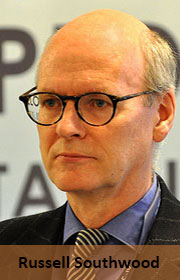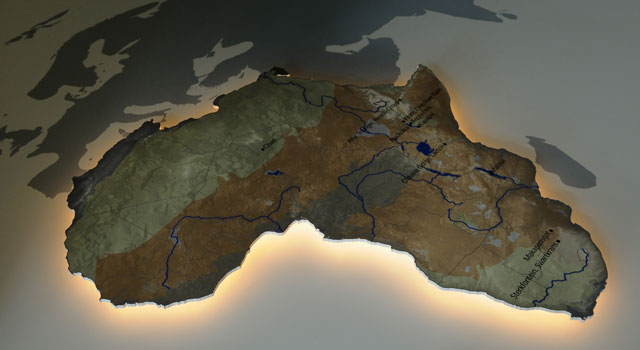 In the past three months, I’ve visited three francophone countries — Côte d’Ivoire, Cameroon and Mali — and talked to those involved in the start-up ecosystem in each country.
In the past three months, I’ve visited three francophone countries — Côte d’Ivoire, Cameroon and Mali — and talked to those involved in the start-up ecosystem in each country.
The most developed of three is Côte d’Ivoire, and the least developed Mali. None is anything like as developed as their nearest anglophone equivalents. But why?
Cameroon is an interesting country because it combines both francophone and anglophone cultures.
Economic explanations about why one country or set of countries is more advanced in some aspect always seems the easier approach. These explanations come with statistics.
Development institutions like the World Bank — heavily staffed by economists — shy away from wider explanations of performance. But as everyone will acknowledge, there are significant differences between Anglophone and Francophone countries and I believe these (as well as economic factors) have had an impact on the relative speed of the development of start-up cultures in them.
This is not an easy or simple discussion. Making generalisations about national cultures is difficult as there are always exceptions.
The francophone factors that have impact are layered over the top of national and ethnic differences. For this reason, my attempts to explain the slow rise of francophone start-up culture are a mixture of cultural and economic factors.
Some of the complexities of the cultural factors are perhaps best illustrated by the example of an anglophone country like Kenya. Its Kikuyus are seen as more go-getting entrepreneurs, a source of some friction between them and other ethnic groups. So perhaps it’s time to try and get to grips with these sorts of differences between African countries (and indeed within them) if a start-up culture is to be relevant and realistic for a wider range of African countries.
The culture discussion is not one confined to francophone Africa, but it is a good place to pick it up and air it. Tefo Mohapi of Lean Start Up Machine Johannesburg told me about a study that showed many of that city’s inhabitants lacked the entrepreneurial hunger to make start-ups a success.
The roots of the current xenophobic attacks have been the success of African migrants in seizing a wide range of opportunities in South Africa that its own inhabitants do not. That discussion is a much longer one but has some relevance here.
With some exceptions (like the predecessor of Jokko in Senegal, which had the same name), start-up culture in francophone Africa seems to have started later and been less well distributed than in anglophone countries.
Language is one of the factors that plays a role. Like it or not, the lingua franca of start-ups and their financing is English. It’s simply more difficult for those promoting a start-up if they do not speak English. Because of this, most African francophone start-ups are almost invisible outside of their country of origin.
When I first started working in Africa 15 years ago, I attended an event about online entrepreneurship in Abidjan in Côte d’Ivoire. The francophone African speakers all gave examples from France. I gave examples from anglophone Africa but no one was really interested in them. I was recently at a telecoms conference discussing the same topic and not much had changed.
Only drawing examples and ideas from La Francophonie is rather limiting because, although there have been successful French start-ups, they are significantly smaller in number than start-ups from elsewhere. Also, start-up investors from France are smaller in number than those from the US and other parts of Europe.
The experience of Cameroon’s Kiro’o Games bears this out. And without English, it’s much harder to promote to those investing from within the continent who tend largely to be drawn from either Nigeria or South Africa. There are almost no local start-up investors in the three countries under discussion, although an angel investor network has recently been started in Cameroon.
Education and the style of doing business is another important factor. The dominance of rote learning and not taking any initiative in the learning process is a topic that is often discussed in the private sector in Africa. Learning to say and do what you’re told and not thinking for yourself is fatal for any start-up culture. Not being able to conceptualise a problem and solve it practically is a fatal hindrance that afflicts both anglophone and francophone African culture.
But as one early Ivorian entrepreneur (who has now gone back to a full-time job) told me, there is a strong tendency — encouraged by the higher levels of French education — to want talk about problems rather than getting down to solving them. “Based on French culture, we talk a lot without acting,” the entrepreneur said. “This revolves around conferences and workshops. Nothing happens afterwards. There are no results. Few start-ups are actually working. We need one success story, but we need to push.”
The ability to speak elegantly and theorise at length are highly prized in francophone culture. Historically, unlike in anglophone Africa, with enough of the “right education” France’s colonial Africans could become honorary French citizens.
As Rebecca Enonchong (who is involved in the ActivSpaces incubator which has 20 start-ups) points out, it was in an anglophone Catholic university in Buea in Cameroon that the country’s start-up movement was first founded. It is also one of the few institutions in Francophone Africa that runs a programme on entrepreneurship. Indeed, she tells me that many francophone Africans are sending their children to anglophone learning institutions, not just for the language but also to give them a different set of attitudes.
At the other end of the spectrum, not being entirely comfortable in French also has an impact in some countries. Rene Gaudin of Jokko Labs in Bamako, Mali talked to me at some length about research he had done some years ago that identified lack of fluency in French as a drawback for getting to grips with French material on the Internet. He believes that not much has changed since this research was carried out. And as someone closely involved in the telecoms industry in Mali told me, “goods travel faster than ideas”.
Finally, anyone will tell you that doing business in francophone Africa is significantly slower than getting the same sort of transactions done in anglophone Africa. At a government level, you are more likely to need a physical letter of introduction to get to see civil servants than you are in anglophone countries. The style of interaction between people is much more formal and hierarchy-driven, something that is bound to disadvantage the young wanting to create new start-ups.
Patronage and government policy is a third factor. For many anglophone African governments, supporting start-ups has become a symbolic act, a sort of acknowledgement that some combination of youth, technology and business will create a very different future. Presidents and ministers either set up their own incubators or rub the flesh in those set up by others. Kenyan President Jomo Kenyatta was recently seen visiting Nairobi’s iHub, all beaming smiles and encouraging words.
Although a Cameroonian minister gave a press conference for games start-up Kiro’o Games, this is very much the exception rather than the rule. Helpings others to help themselves seems to run a poor second to seeing the state as the key agency for change in everything. Start-ups are more likely to find support from the private sector. Orange in Mali is launching a school for developers in September, providing six-month training with a diploma at the end. It is also launching incubators at the same time in the fields of ICT, environment and energy.
In the relatively small economies of francophone Africa there’s less space for young start-ups to escape the spider’s web of political connections, contracts and money. You’re either addressing government as a customer or big businesses like the multinationals. There’s not much of a consumer market and where it exists there are significant barriers to reaching it.

As the former Ivorian entrepreneur told me: “We need to develop a way to pay for digital stuff. We need develop a way to pay for stuff and that means we have to deal with the mobile operators. We have to solve the payment problem. It’s easy to think (as a start-up) that an idea will work. Once launched, it’s nearly always the opposite.”
One of the significant barriers is the cost and quality of the Internet. In Cameroon, the government monopoly on both national and international infrastructure means that consumer Internet prices are at the very upper end of the scale. It was among the last African countries to introduce 3G, so the take-off of consumer Internet has been significantly slower.
Internet prices in Mali, meanwhile, remain unnecessarily high because of transit prices from Senegal. International fibre wholesale prices are still twice as high in Côte d’Ivoire as they are in Ghana, literally only a few hundred kilometres down the road. When I asked government and regulatory representatives why this was the case, there was no clear answer. The irony is that the “mother country” France now has in Arcep, its telecoms regulator, one of the most effective liberalising regulatory bodies in Europe. Sadly, it’s not yet had much impact in francophone Africa.
The impact of these shortcomings is very clear. While many other African countries have spawned music and video-on-demand platforms (over 100 of each), there is none in Cameroon and Mali and only a mobile operator product in Côte d’Ivoire.
The number of smartphones in Côte d’Ivoire, Cameroon and Mali make it difficult to create a business that involves accessing the Internet.
This analysis of the barriers to getting a francophone start-up culture should not be seen as a fixed point. Things are and can change fairly fast in some francophone countries. For example, it is not difficult to imagine that Côte d’Ivoire might become a regional hub for francophone start-ups within the next three to five years. Despite the setbacks from the civil war, it has a robust infrastructure and the government seems determined to rebuild Abidjan’s reputation and role as a regional hub.
Karim Sy’s Jokko Labs has recently opened a co-working space in Abidjan with Patrick Mbengue, Innova/GOTIC Chairman and has also opened another space in Cotonou in Benin with the support of Fondation Zinsou, Iscocel and Microland. Interestingly, it will open in its first anglophone country — The Gambia — at the end of April.
Change can come but there needs to be an acknowledgement that changes in cultural behavior must go hand in hand with economic changes. Indeed, the two are so closely linked that it is almost impossible to change one without the other.
- Russell Southwood is head of Balancing Act Africa
- See the original article

